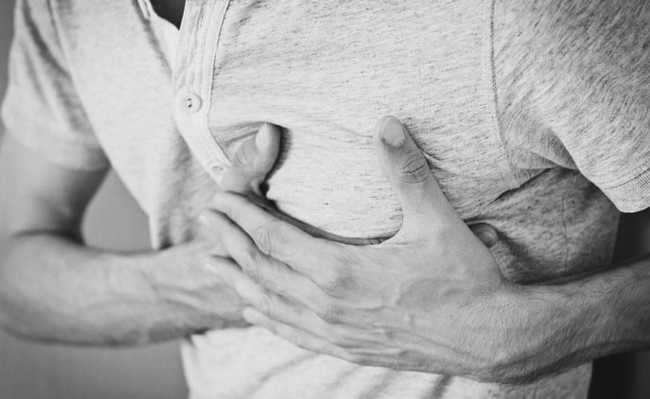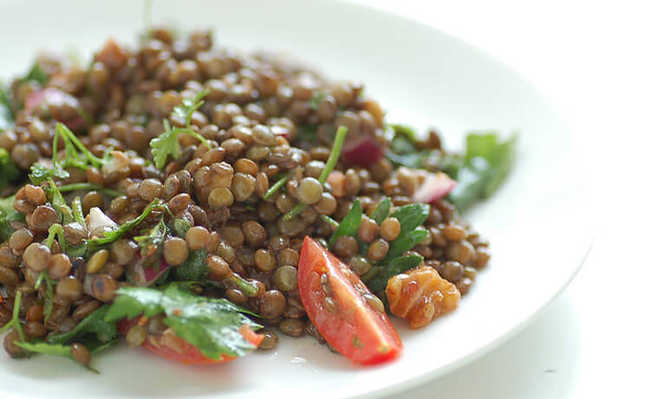Symptoms of a heart attack that we shouldn't ignore
Find out what are the symptoms of a heart attack and stay tuned! They can manifest in different ways in men and women.

A heart attack, also called a heart attack or acute myocardial infarction, is a medical emergency usually caused by a clot that blocks blood flow to the heart. Without blood, tissue loses oxygen and dies. If there is a big doubt as to the correct way to spell the word - heart attack or heart attack , you may have already asked yourself - what there can not be is difficulty in identifying the symptoms of heart attack . The two words are synonymous, with "infarction" being more common in Brazil and "infarction" in Portugal, and the human body wisely sends us signals before a heart attack happens.
The sooner we identify the symptoms of a heart attack, the more likely it is to save your own life or that of someone close to you. There are some differences between heart attack symptoms in women and men. Know the symptoms of a heart attack and learn how to recognize them:
Female heart attack symptoms
- Fatigue: Some women feel very tired even though they have been sitting all day. If walking around the house is already tiring, be alert, it could be a symptom of a heart attack;
- Stomach pain: Women may experience intense abdominal pressure and severe stomach pain before having a heart attack;
- Chest Pain: Chest pain may not focus on a specific point on the left side of the chest. It is possible that it extends to any other point in the region, causing rigidity;
- Dizziness, nausea, and shortness of breath: these symptoms of a female heart attack can occur together, overnight, and for no apparent reason;
- Sudden sweating: Sudden sweating is a symptom of heart attack more common in women than in men. Some women may confuse this symptom with stress;
- Neck and jaw pain: For women, left arm pain may not appear before a heart attack, but they may experience neck and jaw pain - the pain can be sudden or gradual.
Symptoms of infarction in men
- Chest Pain: Chest pain is one of the most common symptoms of heart attack, especially for men. In this case, it can occur in the center of the chest or in a right-left direction, towards the heart. Feelings of heaviness in the chest or heavy pressure are also reported;
- Arm Pain: Chest pain spreads not only to the arms, shoulders and elbows, but also to the neck, jaw and abdomen. Sometimes chest pain does not occur, but pain in at least one of the arms or in the back between the shoulders does;
- Fatigue: The feeling of tiredness and fatigue can be a symptom that a heart attack is about to happen. It can appear a few days or weeks before the heart attack;
- Cough: A persistent cough can be an indication that a heart attack is coming, because of the accumulation of fluid in the lungs. Coughing of blood may occur;
- Eager: a heart attack can cause a state of anxiety and fear of dying all at the same time, it can also cause tachycardia;
- Insomnia: Before having a heart attack, a person can spend months suffering from insomnia, anxiety and agitation - this is one way our body shows that something is wrong;
- Weakness: Days before a heart attack, the individual may feel an overwhelming sense of weakness.
- Fast and irregular heartbeats: Fast and irregular heartbeats, especially if accompanied by weakness, dizziness, and difficulty breathing, may indicate a heart attack, arrhythmia, or heart failure;
- Dizziness and vertigo: Dizziness and vertigo can be symptoms of a heart attack. Stay tuned!
- Cold sweats: Cold sweats that come on suddenly, even if there has been no strenuous physical activity, can be indicative of a heart attack;
- Swelling: Swelling in feet, ankles, abdomen, legs, sudden weight gain or loss of appetite are also risk symptoms;
- Indigestion: feeling stomach discomfort, such as heartburn and digestion difficulties, may be another symptom of a heart attack;
- Breathing problems: difficulty breathing and shortness of breath, possibly accompanied by chest pain, may be indicative of heart attack or heart failure;
- Nausea and lack of appetite: nausea and lack of appetite can be signs that a heart attack is coming, vomiting may occur just before or during the heart attack.
How to avoid a heart attack
- Stop smoking;
- Get at least 30 minutes of physical activity a day;
- Keep your body weight healthy, beware of being overweight;
- Have a healthy diet, with more nutrient-rich foods, invest in vegetables and fruits and eat less meat and fried foods;
- Get regular routine checkups to check your health status - extra care is needed by anyone with a family history of heart problems (even if it's "just" cholesterol or high blood pressure).
Source: Healthline, WebMD, Heart.org, Mayo Clinic










